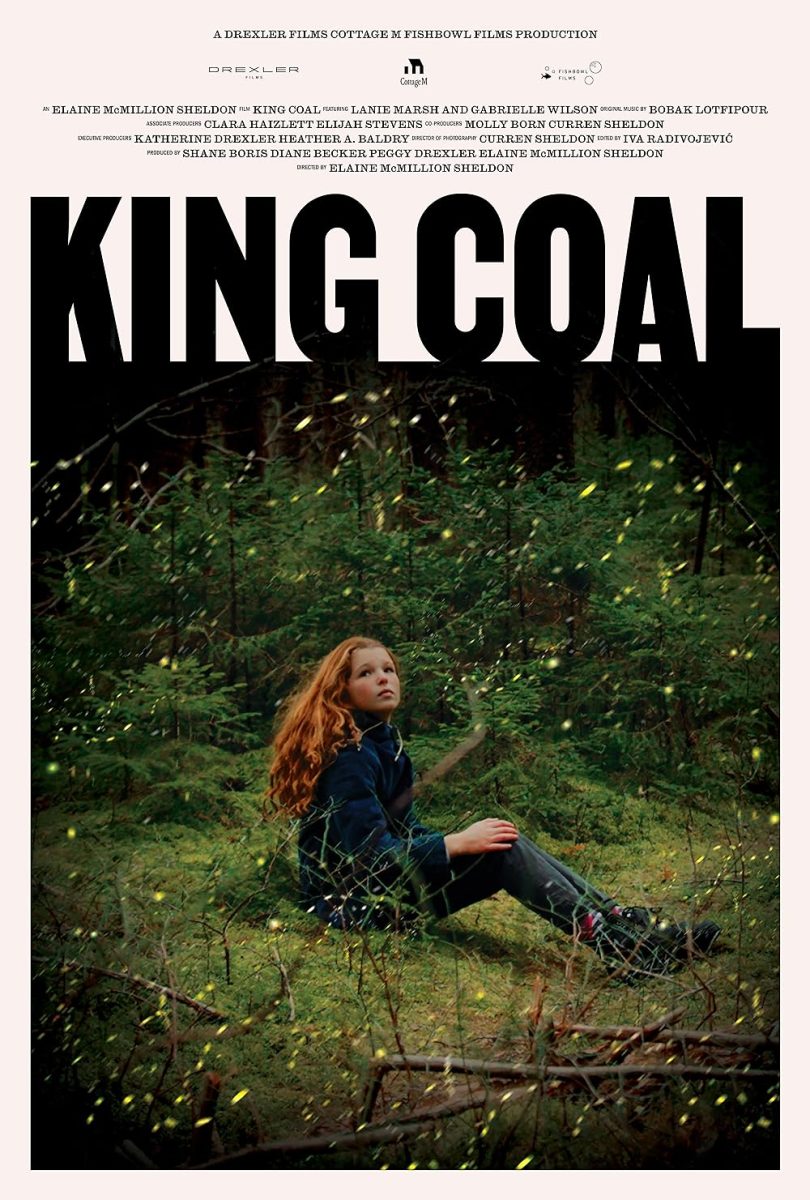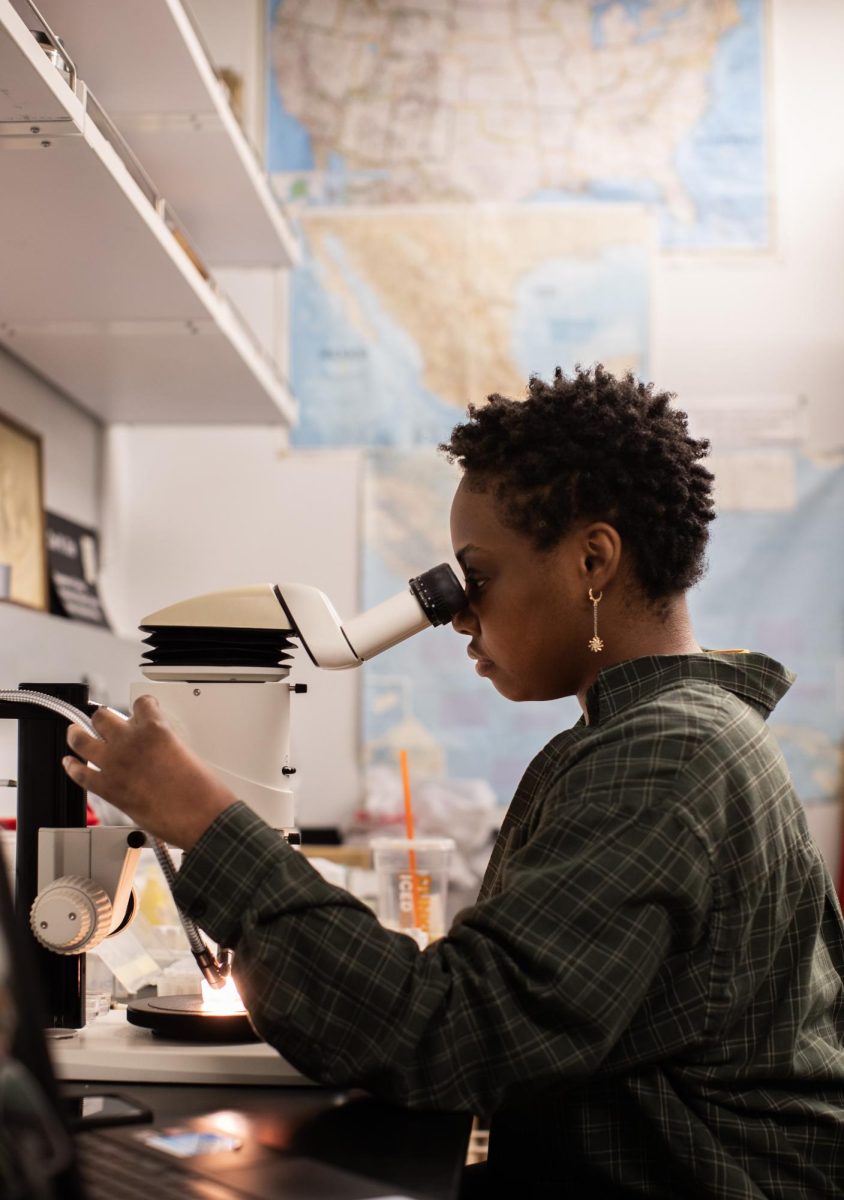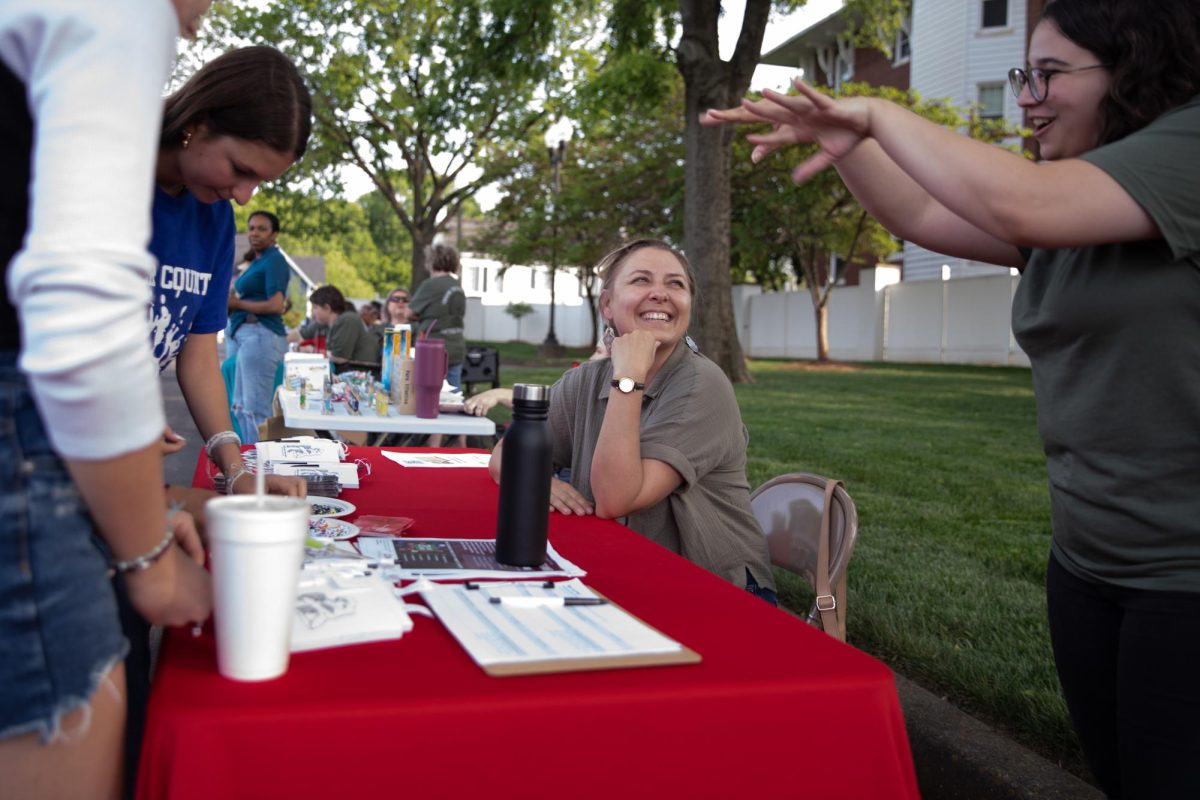Directed by Academy Award-nominated filmmaker Elaine McMillion Sheldon, “King Coal” closed this semester’s Cultural Enhancement Series on Thursday, April 11, at the Capitol.
“A quilt of the community,” as Sheldon described it, “King Coal” weaves the scenery of Appalachia and the stories of people who live there together. The film follows several characters, one of whom is portrayed by Lanie Marsh, a sixth-grade student from Hurricane, WV.
At the beginning of the movie, Marsh asks her friend, played by Gabrielle Wilson, a sixth-grade student from Charleston, WV, what coal means to her family. Both Marsh and Wilson were cast at local dance studios in West Virginia. Sheldon said she did not script any dialogues in the movie.
“How can we pay respect and recognize where we come from in the process of saying goodbye?” Sheldon said this question is the central tension of the movie and something she was asking herself from the first days of filming.
Sheldon and her team created “King Coal” over the course of three years, from 2019 to 2022.
“I had made other films about coal, like ‘Black Lung,’ and about politics and the environment. Coal was part of the national conversation, but we weren’t having a conversation about the culture,” Sheldon said. “It felt like it was the right time to start documenting it.”
Some other films that Sheldon has directed include “Heroin(e)” and “Recovery Boys,” which are both Netflix original documentaries that discuss the opioid crisis.
Sheldon said usually documentary filmmakers only observe the lives of people whose stories they are telling. Creating “King Coal,” however, allowed her to document the feelings of people.
“It required me to call upon cinematic devices, like sound design and other interesting things, to transport people to the place I love, rather than giving them information about the place I love,” Sheldon said. “[‘King Coal’] challenged me in all the ways a film can.”
Sheldon said she had never narrated a film before and was not planning to be the narrator in “King Coal” until the final days of production. She said she wrote the monologue from different points of view – one of a river, someone from the future and a little girl – in order to avoid making it too personal.
“It’s easy for me to be a fly on the wall, observe people and come out with a way that I feel is respectful to them – I am very good at that. What I am not good at is being upfront about my own feelings about this place,” Sheldon said in a q-and-a session that followed the movie screening. “I think the process of having two kids […] sort of held my feet to the fire in a sense of ‘what do you want to say to them, to the next generation?’”
Sheldon obtained her bachelor’s degree in journalism from West Virginia University. She went on to pursue a master of fine arts degree from Emerson College.
“I wanted to spend more time with people’s stories, and documentaries seemed like an outlet in which you do that, whereas with journalism, I was only able to spend a day or a couple of hours with someone,” Sheldon said. “I wanted to spend months.”
Currently, Sheldon teaches film classes at the University of Tennessee in Knoxville.
Gregory Matthews, senior communication studies major, said he attended the screening of “King Coal” as an extra credit opportunity for one of his film courses. Matthews said he liked that the movie provided an “extremely interesting perspective.”
WKU alumn Abby Whitlow, who graduated in 2023 with a master’s degree in social work, came to see the movie together with Matthews. Whitlow said she loved the film, and that “King Coal” is a “beautifully told story.”
The Cultural Enhancement Series is organized by the Potter College of Arts and Letters. Anthony Harkins, WKU professor and chair of the PCAL Cultural Enhancement Series committee, said the screening was also part of the Southern Circuit Tour of Independent Filmmakers film series.
Harkins said the film “seemed like a natural fit” in the context of the region, climate change and the evolving demographics of the state.
“‘King Coal is a lyrical conceptualization of what coal has meant for the region, how important it has been and how we can move forward,” Harkins said. “Appalachia is often demonized and caricatured, and I think this is a film that can help people see a much more complex and honest representation of the region.”
News Reporter Mariia Novoselia can be reached at [email protected].




















![Megan Inman of Tennessee cries after embracing Drag performer and transgender advocate Jasmine St. James at the 9th Annual WKU Housing and Residence Life Drag Show at Knicely Conference Center on April 4, 2024. “[The community] was so warm and welcoming when I came out, if it wasn’t for the queens I wouldn’t be here,” Inman said.](https://wkuherald.com/wp-content/uploads/2024/04/smith_von_drag_3-1200x838.jpg)








